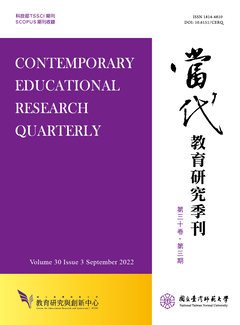

Since the implementation of the multiple entrance program and the Nine-Year integrated curriculum, students' participation in cram schooling has been largely increasing. Is it beneficial to participate in cram schools to enhance academic achievement? How does student background influence the participation of cram schools? How does the difference of academic achievement between aborigines and Hans result from the different patterns of participating in cram schools? Those questions are worth further investigation. The data was adapted from ''Taitung Educational Panel Survey'' which surveyed eighth grade students and their parents in 2005, and analyzed utilizing path analysis. Some major findings were as follows. First, academic cram schools greatly positively influenced academic achievement, but art cram schools did not. Second, students' background showed great impact on whether to go to academic cram schools or not due to the lowest socioeconomic status and the highest percentage of aboriginal population in Taitung among all counties in Taiwan. As a result, the opportunity of attending cram schools was limited for those students from a disadvantageous background, such as low socioeconomic background and aboriginal students. Finally, the average academic score of Hans is higher than that of Aborigine, and roughly one-third of the overall contributing factor could be assigned to the Aborigines' less opportunities of attending academic cram schools compared with Hans.

This work is licensed under a Creative Commons Attribution-NonCommercial 3.0 Taiwan License.
Center for Educational Research and Innovation, National Tawain Normal University
162, Ho-Ping East Rd, Sec. 1, Taipei, Taiwan | Tel:+886-2-7749-3670 | E-mail: cerecerq@gmail.com
CERI | NTNU | E-mail Alerts | Open Journal System
© 2014 CERI-NTNU
